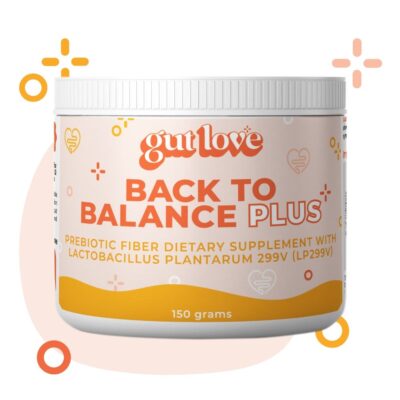Crohn’s disease is a type of inflammatory bowel disease or IBD that affects the digestive tract. The other types of IBD include ulcerative colitis and microscopic colitis. Crohn’s disease can affect a patient’s digestive system anywhere from the mouth to the anus and can be diagnosed at any age while it is most commonly diagnosed between the ages of 15 and 35.
Many individuals with Crohn’s disease can share similar experiences, like wondering if you can eat salad with Crohn’s Disease? It is also true that many people with Crohn’s have different experiences despite having the same disease. This is especially why it’s important that a person with IBD receives individualized medical treatment with their GI. And if possible medical nutrition therapy with an IBD specialized dietitian.
Having a Crohn’s disease diagnosis can understandably stir many thoughts and concerns for the individual living with this disease. Flare ups can impact quality of life and can also quite often affect our food choices too.
There is not a one-size-fits-all diet and management plan for people with Crohn’s Disease. And we know this can make meal planning a challenge as different people can react to foods differently.
In today’s post, we are focusing on a common symptom trigger we get asked about a lot – salads. If it triggers symptoms is it ok to have? Are there any concerns with having salads? What does it mean if you have a bad reaction to consuming salad? We will discuss all this and more below.
Can You Eat Salad With Crohn’s Disease?
It depends. While we know salad in itself doesn’t cause harm to those with IBD directly, it can be a symptom trigger for many while in a flare up. However, the good news is that there are ways we can modify food to reduce symptoms rather than eliminating trigger foods altogether. It’s important to note that in some scenarios (narrowing or strictures) you may need to work 1:1 with your dietitian to find out what’s appropriate for you.
There are many ways that a salad can be prepared. There is no wrong or right way to create a salad and tolerance with salad really varies from person to person depending on factors like – where your IBD is located, if you are in a flare or not, your current fiber tolerance etc! Despite what the forums will tell you – it’s not black and white.
For example, if you are in a flare and are feeling extremely symptomatic, you may not even desire a salad or want to consume raw vegetables. You might avoid it instinctively or may have discovered that it didn’t go well last time you had it. Tough skins on some vegetables can also be decreased in an active flare up to help with reducing symptoms in the short term.
On the flip side, let’s say you’re not symptomatic and are curious if eating a salad as a main dish would be safe for you to have.
The best way to answer this question is to understand your Crohn’s disease (which happens over time) and what works and doesn’t work for you.
For those patients with a history of strictures or narrowing from inflammation and/or intestinal surgery, it may be best to choose softer and easily-digestible vegetables such as well-cooked, blenderized foods. If you have a history of blockages or fistulas, you may find that consuming raw vegetables are harder for you to tolerate.
Consuming raw fibrous foods like salads can lead to IBD discomfort for some patients. This is due to the fiber’s roughage and irritation to the digestive tract. This is why it has been recommended to avoid raw veggies, especially during times of active inflammation. Roughage from fiber can further exacerbate IBD symptoms thereby worsening the condition.
Although most people always associate the symptoms from salad with the leafy greens, salad dressing can quite often be the culprit. Certain foods like dairy and additives that can be found in dressings and ice-cream, including carrageenan, polysorbate 80, carboxymethylcellulose. And emulsifiers should be avoided with IBD since it can lead to intestinal inflammation (mostly seen in animal models).
Are these reasons to avoid salads if you’re in remission or in a flare? Continue reading on to learn more about whether we should be eating salads with Crohn’s disease or if it’s best to stay away.
Best Salads For Crohn’s Disease
If you’re a salad lover like I am, then it may be relieving to know that you can always modify or adjust the textures of your salad. You can make them more tolerable during times of remission (quiescent IBD) or active inflammation.
Because fruits and vegetables such as salads are generally higher in fiber, it is recommended to go low and slow with reintroducing new foods (during or in remission) to decrease added discomfort.
Limiting your intake of certain foods that can be found in salads that are higher in fat (such as fried foods or full-fat dairy) can be a great way to decrease abdominal discomfort. In the event that you are following a low FODMAP diet to improve symptoms from another GI condition such as IBS, then it is best to work with your IBD-specialized dietitian to reintroduce some of these foods that can be higher FODMAPs back into your diet.
If you want some suggestions on how to modify your favorite salads to make them more IBD friendly, here are some quick suggestions below.
Cobb Salad:
Chopped green vegetables, bacon, chicken, avocado, blue cheese, tomatoes, hard-boiled eggs, and vinaigrette
- Make it IBD friendly: Use tofu for a plant-based protein source or salmon (instead of eggs). It may be a good idea to take out fried foods, like bacon. And include an IBD-friendly dressing such as Primal Kitchen or Chosen Foods. This salad can be good for those who are in remission and tolerate raw veggies.
Mediterranean Salad:
Green or butter lettuce, cucumber, cherry tomatoes, red onions, black olives, feta cheese, and freshly squeezed lemon
- Make it IBD friendly: This salad is considered IBD friendly overall. If feta cheese is consumed, it would be a more tolerable choice since it has a lower lactose content. This salad can be consumed by those who tolerate raw veggies well.
- Bonus: Add garbanzo beans for a good protein source! If you’re concerned about the lectin content, check out this article to learn more.
Wedge Salad:
Iceberg lettuce, blue cheese, crumbled bacon, chives, and cherry tomatoes.
- Make it IBD friendly: This salad is better tolerated due to the type of lettuce that is being used in comparison to other high fibrous greens. Remember that salads should be personalized and consumed to what’s tolerable for you. Remove the bacon and consider switching to an olive oil dressing to make it more IBD friendly. You may also want to take out blue cheese and use avocado. Or an IBD-friendly dairy-free cheese such as Miyoko’s sharp cheddar (made without coconut oil) instead.
Chopped salad:
Cucumbers, tomatoes, carrots, nuts, onions, and other veggies which are all chopped.
- This tends to be high on the roughage side. And many patients with Crohn’s may have a tougher time tolerating the particle size of these veggies. For some, however, they feel perfectly fine after consuming a chopped salad. Make it IBD friendly by cooking your vegetables to a softer texture.
Caesar salad:
Romaine lettuce, parmesan cheese, croutons, tomatoes, and Caesar dressing
- IBD friendly: Consider changing salad dressing since high-fat dairy products can lead to discomfort. And are generally recommended to be limited with IBD. Consider a non-dairy Caesar option like the ones from Primal Kitchen and Chosen Foods. They taste just as good (if not better) and are IBD friendly. Certain spicy foods that are also added to salads can cause uncomfortable symptoms. If you have Celiac Disease or are gluten-sensitive, consider using gluten-free croutons as a topping of choice.
Remember, if you are experiencing Crohn’s symptoms after consuming raw vegetables or leafy greens, decreasing the amount consumed and modifying the texture (cooking, chopping finely or blending) can help with reducing symptoms.
Well-cooked vegetables such as steamed carrots, edamame, roasted yellow peppers, and cooked tomatoes are great when blended and mixed with a whole-grain pasta. Believe it or not, making a pasta salad can be just as nutritious as eating a raw salad!
Salads can be prepared raw or cooked to your own liking.
Raw vegetables can often be triggering to our IBD patients. Part of the reason is due to the fiber’s particle size and also its solubility. For example, insoluble fibers such as celery, cucumbers, nuts, and seeds can speed up the transit time in the digestive tract causing discomfort. This is why working with your dietitian on your tolerance to certain foods can be a helpful way to introduce or reintroduce some of the most nutritious foods back into your diet.
If you notice that you don’t experience any symptoms when consuming salads, then modifications may be unnecessary. However, if you notice an uptick in symptoms with salads, consider trying some of the modifications mentioned above.
Getting lots of colors and diverse plants in the diet as we know can be helpful with IBD. However, these foods are often fear foods for those with IBD due to the symptoms they sometimes cause!
The good news is that you don’t always need to avoid fibrous foods or salads with Crohn’s disease. Finding modifications for symptom triggers can help you add more variety to the diet and provide you with more nutrients needed to combat inflammation and improve your overall health.
Find more Crohn’s Disease Diet Recipes in this post.
If you need further support navigating diet and IBD, schedule a free discovery call with us!






Hey , my name is priya…I am from India..I am suffering with chrons disease and I have taken medicine 2years back…and my treatment is not yet completed but I don’t have any symptoms now.but still having stitcher in my intestines and no inflammation.. I am suffering with lot of constipation..I am taking cremaffin plus syrup for every ten days nearly from sn year…can you give any suggestions on how to cure my constipation problem
We can’t give guidance on a blog, but you are welcome to reach out about becoming a patient.
Hi, I have a grandson who has had chronic crohn’s disease in the past and flares up every now and than. What salad can I do for Christmas which is tasty and wont harm him?
Thank you
Hi Cheryl, many research studies show improvements in IBD for those that consume leafy greens. While I can’t give individualized advice on here since I don’t know your grandson’s case, I will say many of our patients start by doing sautéed greens.